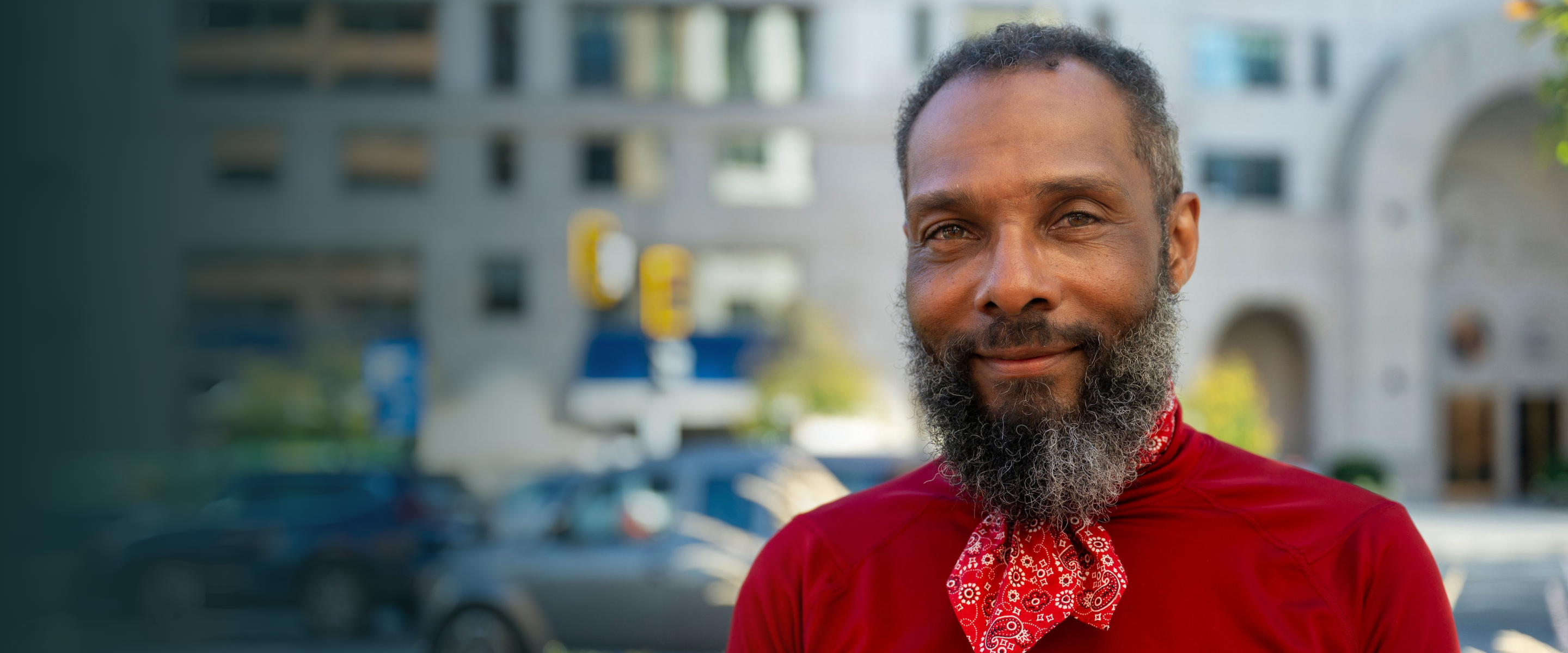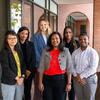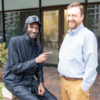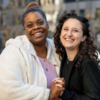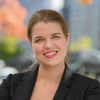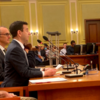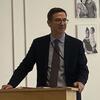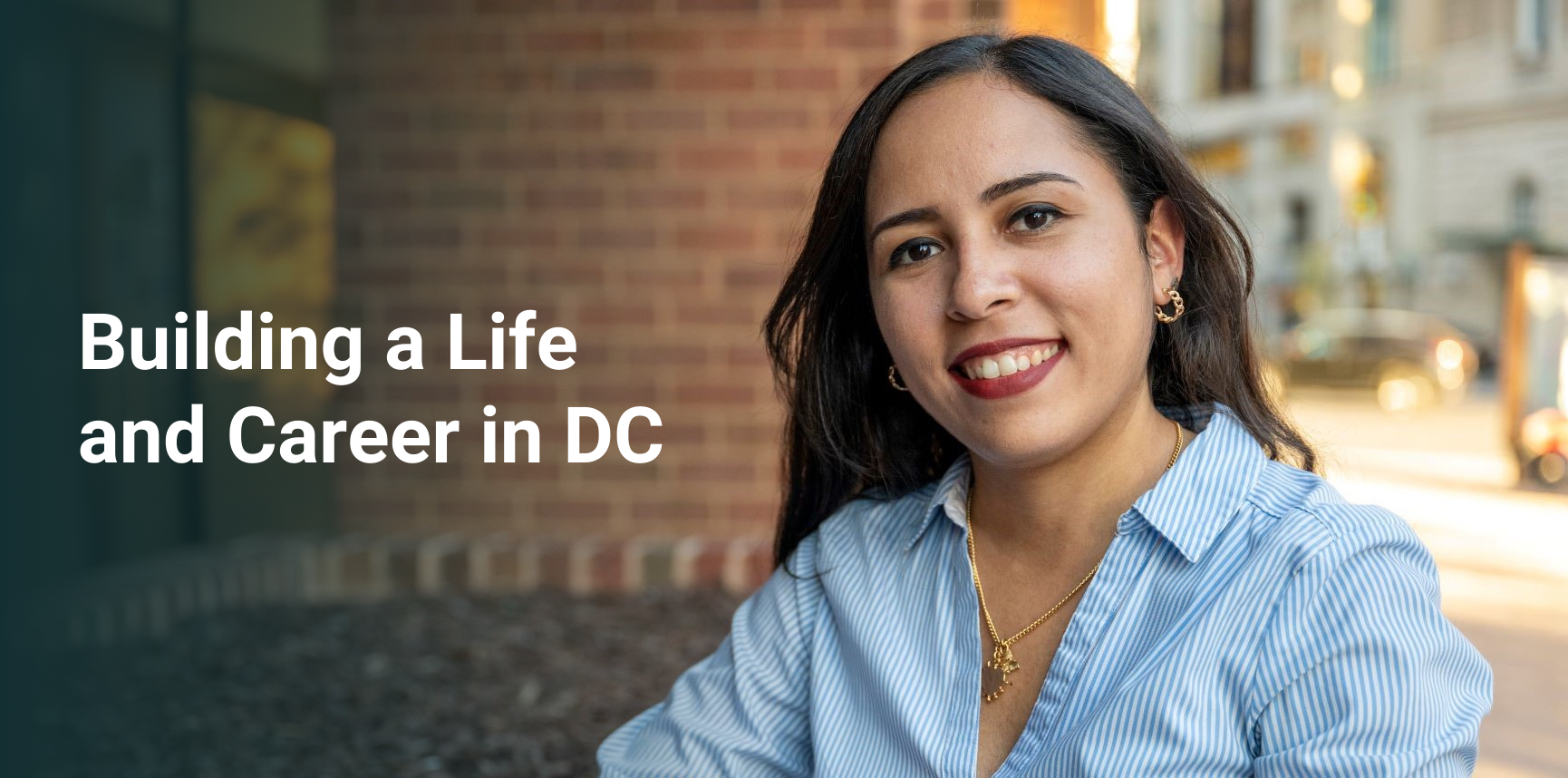Daniela Ricardi* spends her days in the classroom, working through lessons and hands-on learning activities with children ages 3-5 as a teaching assistant at a Montessori school in DC. Originally from Venezuela, Ms. Ricardi also builds the young students’ language skills at the fully immersive bilingual school.
"We speak with them a lot in Spanish so that they can understand and learn the new language,” she said.
When she’s not helping young kids learn Spanish, she’s taking classes to improve her English at Carlos Rosario International Public Charter School, a school for adults that serves DC’s immigrant communities and a longtime partner of Legal Aid. A staff member at Carlos Rosario encouraged her to come to Legal Aid for help with her immigration case in October 2023.
“They told me to go there, talk with Legal Aid and see what a lawyer has to say,” she recalled. “So I went to the office, and they said yes, they’d be very glad to help me.”
Ms. Ricardi already had a work permit and temporary legal status through a process called humanitarian parole, a federal response to increased migration from Venezuela amid a humanitarian crisis.
“The situation in Venezuela is very complicated, economically and politically,” Ms. Ricardi said. “I was a journalist, and they closed the radio station where I was working. It was very hard to get a job in journalism because everything is controlled by the government. So, I decided to emigrate.”
Ms. Ricardi arrived in DC in March 2023, joining her sister and brother-in-law, who had emigrated five years earlier. Through the humanitarian parole program, she was allowed to live and work in the U.S. for two years. However, she was looking for guidance on her options and how to get greater stability for a long-term future in DC.
At Legal Aid, Ms. Ricardi connected with Senior Staff Attorney Wendy Cheng, who recommended that she apply for Temporary Protected Status (TPS).
“Ms. Ricardi is building a life here in DC, and we wanted to make sure she had the greatest possible stability to continue living and working here,” Wendy said. “Because the humanitarian parole program was new and not nearly as established as TPS, we worried that it would not be renewed — which would leave Ms. Ricardi in a tough position.”
Ms. Ricardi applied for TPS and a new work permit with Wendy's help, and she said Wendy made her feel much more confident navigating the process.
“It’s always important to have a lawyer so they can tell you the steps you need to take. Wendy really was a huge help,” she said. “She was always on top of things, following up, telling me not to worry.”
Ms. Ricardi’s TPS and work permit were approved in May 2024. Just a few months later, Wendy’s concerns about humanitarian parole proved true: In October, the government announced that it would not be renewing the program for several countries, including Venezuela. Because she has already secured TPS, Ms. Ricardi isn’t facing the same pressure or uncertainty as thousands of other people in a similar position.
“I’m so happy that my TPS and my work permit came in time,” Ms. Ricardi said. “It’s much better because many other people already have TPS, and it’s more reliable.”
Ms. Ricardi is still counting on Venezuela to be redesignated as a TPS country in 2025. And while TPS doesn’t directly offer a path to citizenship, maintaining a legal immigration status preserves her ability to pursue citizenship in the future.
In the meantime, Ms. Ricardi is continuing to build a career and a life in DC, and recently moved into her own apartment.
“I’ve really liked Washington DC, because it’s a place with a lot of opportunity. Right now I’m studying for free at Carlos Rosario, which is great for me to improve my English and look for future job opportunities, whether in my current career in education or something else,” she said. “I’d like to stay here if my TPS continues and everything is renewed.”
*A pseudonym has been used in this story to protect the client’s privacy
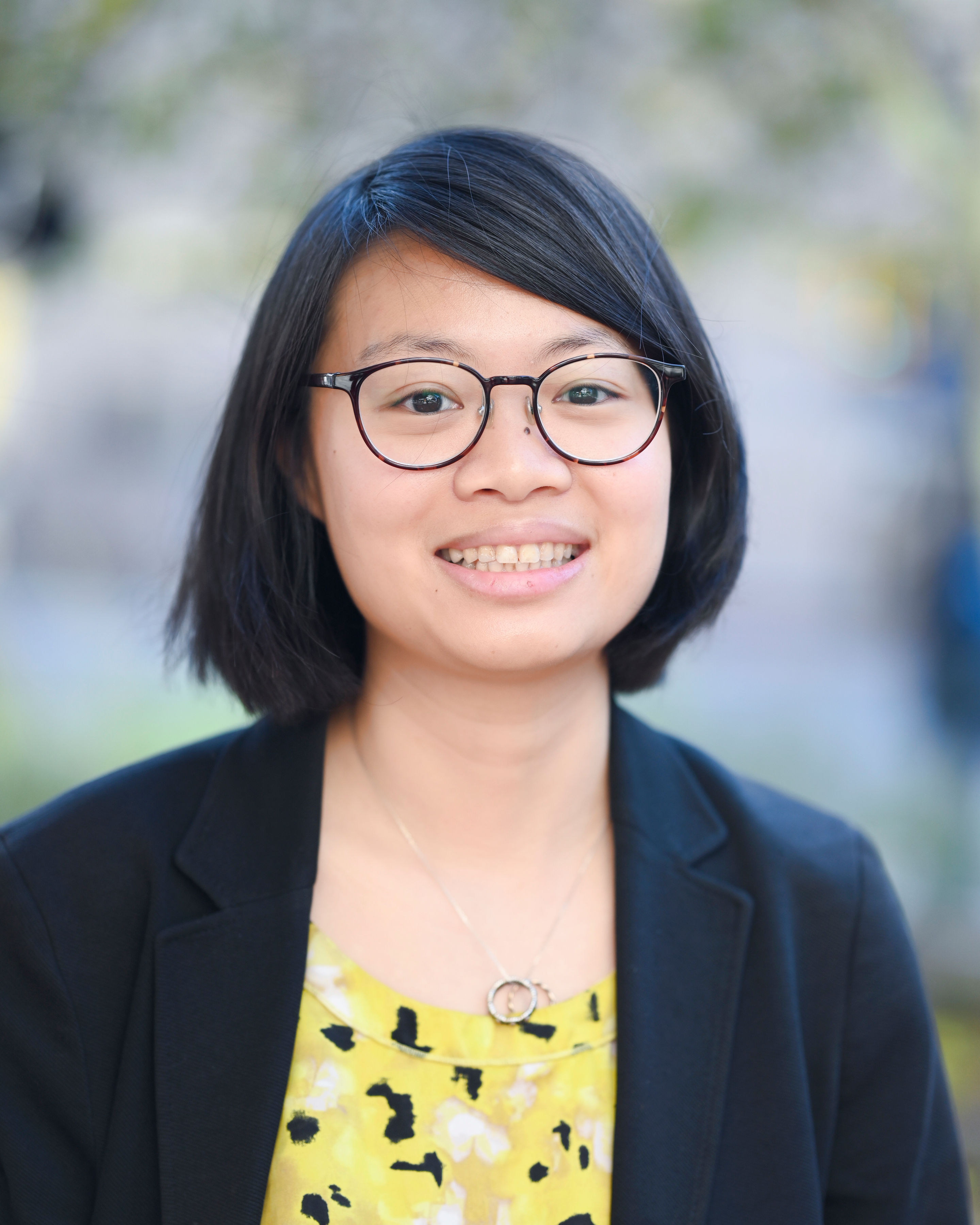
“Ms. Ricardi is building a life here in DC, and we wanted to make sure she had the greatest possible stability to continue living and working here."
Wendy Cheng

